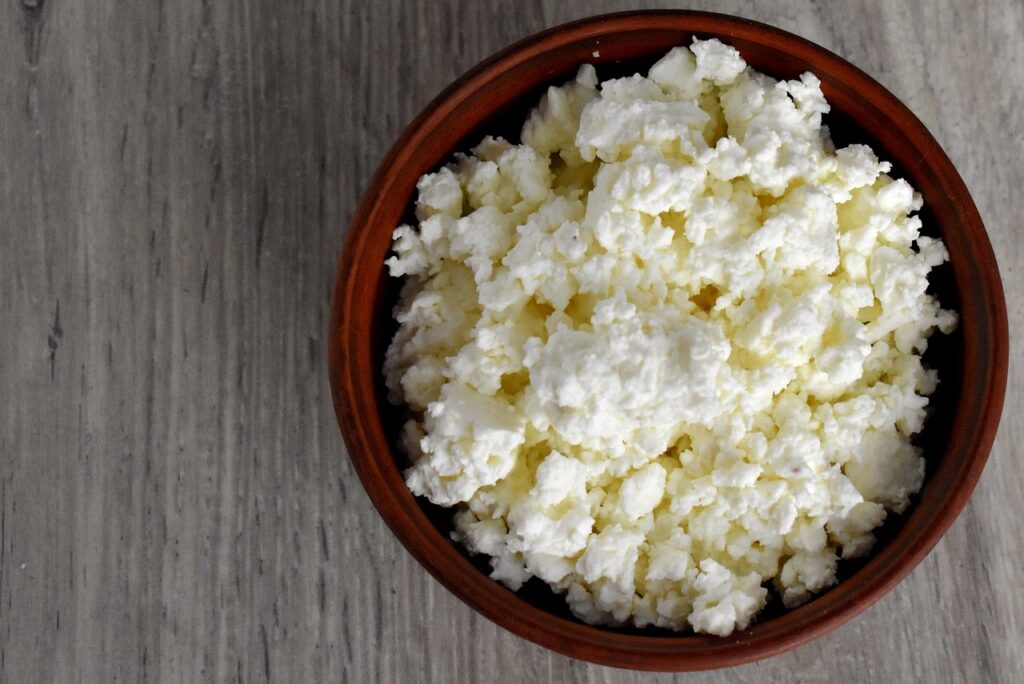
Is Cottage Cheese Keto-Friendly?
The ketogenic diet has gained significant popularity in recent years due to its potential for weight loss and improved metabolic health. When following a keto diet, it is crucial to choose foods that are low in carbohydrates and high in healthy fats. Cottage cheese, a type of cheese known for its creamy texture and versatility, is often a topic of discussion among those following the keto lifestyle. In this comprehensive guide, we will explore whether cottage cheese is keto-friendly, its nutritional profile, potential benefits, and how to incorporate it into a ketogenic diet.
Understanding the Nutritional Profile of Cottage Cheese
To determine whether cottage cheese is suitable for a keto diet, it’s essential to examine its nutritional composition. Cottage cheese is made by curdling milk and separating the curds from the whey. It is typically low in fat, but the exact nutrient content can vary depending on the brand and type of cottage cheese.
In a typical serving of cottage cheese (approximately 100 grams), you can expect to find around 98 calories, 4 grams of carbohydrates, 11 grams of protein, and 4 grams of fat. The carbohydrate content is relatively low compared to other dairy products, making cottage cheese an appealing choice for those following a keto diet.
Carbohydrate Content and Ketosis
- One of the main goals of a ketogenic diet is to induce a state of ketosis, where the body shifts from using carbohydrates as its primary fuel source to burning fat instead. To achieve and maintain ketosis, it is crucial to limit carbohydrate intake. While the carbohydrate content of cottage cheese is higher than some other keto-friendly foods, it can still fit within the daily carbohydrate limit for most people on a ketogenic diet.
- The carbohydrate content in cottage cheese primarily comes from lactose, a naturally occurring sugar found in dairy products. However, the lactose content can vary among different brands and types of cottage cheese. Some cottage cheese varieties labeled as “low-fat” may have a higher lactose content to compensate for the reduced fat content. It’s important to check the nutrition label to ensure you’re choosing a cottage cheese with a lower carbohydrate content.
Protein Content and Gluconeogenesis
- Another consideration when evaluating the keto-friendliness of cottage cheese is its protein content. While protein is an essential nutrient, consuming excessive amounts of protein on a ketogenic diet may hinder ketosis. This is because excess protein can be converted into glucose through a process called gluconeogenesis, potentially raising blood sugar levels and inhibiting ketosis.
- Fortunately, the protein content in cottage cheese is generally well-balanced and should not pose a significant issue for most individuals following a keto diet. The protein in cottage cheese can also provide satiety and help maintain muscle mass during weight loss.
Choosing the Right Cottage Cheese
When incorporating cottage cheese into a ketogenic diet, it’s important to choose the right type of cottage cheese to fit your macronutrient goals. Here are a few considerations to keep in mind:
- Full-fat vs. Low-fat: Opting for full-fat cottage cheese is generally a better choice for a keto diet. Full-fat cottage cheese contains more fat and fewer carbohydrates compared to low-fat versions, making it a more suitable option.
- Plain vs. Flavored: Flavored varieties of cottage cheese often contain added sugars and artificial ingredients. Stick to plain cottage cheese and add your own keto-friendly flavorings, such as herbs, spices, or low-carb sweeteners if desired.
- Check the Labels: Different brands may have varying nutrient compositions, so always check the labels for the specific carbohydrate, protein, and fat content.
Incorporating Cottage Cheese into a Ketogenic Diet
Now that we’ve established that cottage cheese can be keto-friendly, let’s explore some ways to incorporate it into your ketogenic diet:
- Standalone Snack: Cottage cheese can be enjoyed on its own as a quick and easy snack. Pair it with some sliced vegetables, such as cucumbers or bell peppers, for added crunch and flavor.
- Salad Topper: Cottage cheese can be a great alternative to high-carbohydrate dressings or creamy toppings. Use it as a salad topper or mix it with some herbs and spices to create a keto-friendly salad dressing.
- Smoothies and Shakes: Blend cottage cheese with low-carb fruits, such as berries or avocado, and a low-carb milk or almond milk to create a creamy and satisfying smoothie or shake.
- Baking Ingredient: Cottage cheese can be used as a substitute for other high-carbohydrate ingredients in baked goods. It can add moisture and a creamy texture to recipes like keto-friendly pancakes or muffins.
- High-Protein Meals: Cottage cheese can be incorporated into various high-protein keto meals, such as omelets, frittatas, or casseroles, to boost the protein content and enhance the creaminess.
- In conclusion, cottage cheese can be a suitable addition to a ketogenic diet, thanks to its relatively low carbohydrate content and balanced nutritional profile. It provides a good source of protein, calcium, and other essential nutrients. However, it’s essential to choose the right type of cottage cheese and monitor portion sizes to ensure it fits within your daily macronutrient goals. As with any food, individual responses may vary, so it’s always advisable to consult with a healthcare professional or registered dietitian before making significant dietary changes.
- CBD Gummies By Just Delta-Indulge in Just Delta’s CBD Gummies: A Flavorful Journey to Wellness! - March 8, 2024
- Ghee vs. Butter: Which Is Healthier? - July 15, 2023
- Is Cottage Cheese Keto-Friendly? - July 15, 2023

